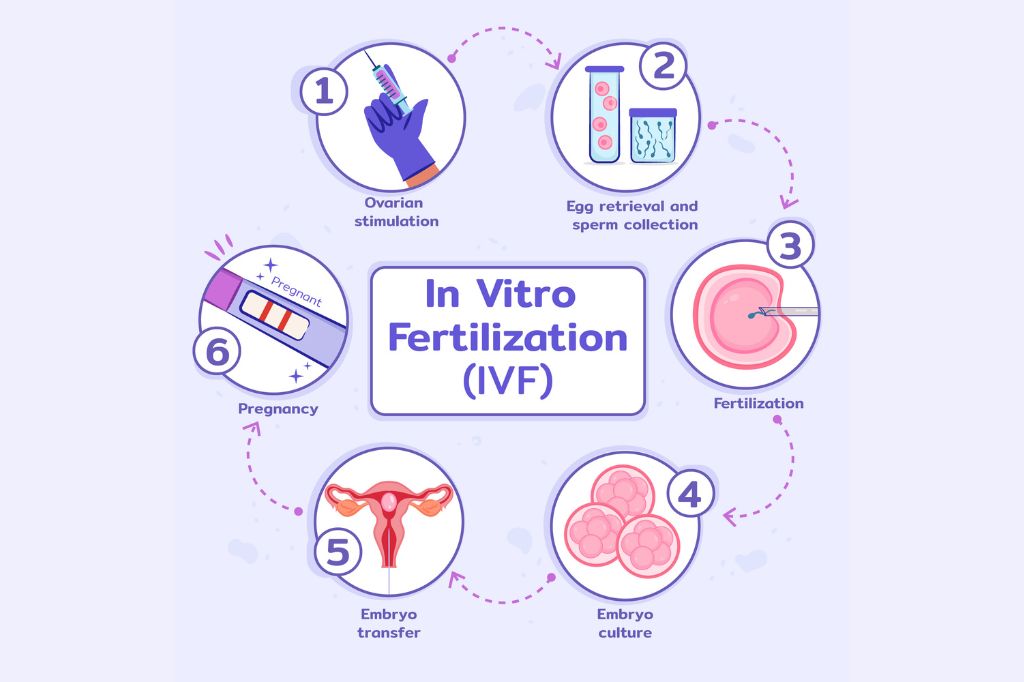Some Interesting Facts About Fertility
Fertility is all about the capability of a woman to conceive a baby. Infertility is called the inability of a woman to become pregnant after doing regular unprotected intercourse for 1 year if the age is less than 35 years and for women after six months of regular intercourse if their age is more than 35 years of age.
But fertility problems are not only limited to women; they can be experienced by men also. Some people think that they know most of the facts about fertility treatment facts, but in reality, there are many facts that we don't know about fertility.
Today, we will discuss everything about fertility facts which you should know.
Interesting facts about infertility
Fact 1: Your cycle consists of an 'Ovulation-period,' which you should know
Your chances of conceiving will increase if you have intercourse during the fertility window or 'ovulation' period. Your ovulation period will depend on the duration of your cycle. Ovulation happens after 14 days of your periods starting date. For instance, you can monitor your menstrual cycle and can track your periods date. You can also take an ovulation urine test or take the advice of your O&G specialist.
To conceive, you must do sexual intercourse on ovulation day or two days before that. It is because the life cycle of sperm is 3 to 5 days, and the egg can be fertilized only within 24 hours after ovary release.
Fact 2: Your ability to conceive depends on diet
Your diet may have an impact on your health and ability to conceive. Unlike other factors like age and genetics, which we can't control, eating healthy food is in our hands and can enhance fertility.
Several foods can increase or decrease your fertility chances. For instance, doctors always recommend intake of iron, vitamin D, folate, and calcium.
Women are advised to consume more monounsaturated foods, including avocados, olive oil, and nuts. They are also encouraged to eat more plant-based processed protein sources like beans, tofu, lentils, tempeh, chickpeas, seeds, and nuts.
It will help if you avoid sugary drinks, soft drinks, energy drinks, or any other processed food.
Fact 3: Keep a check on your weight
Maintaining your weight plays a pivotal role in conception. Because of weight issues, many underweight and overweight couples face fertility issues. In case of underweight because of malnutrition or over-exercise, your menstrual cycle will get affected. Similarly, your internal hormone chemistry will get disturbed in an overweight condition. It will cause disturbance in the menstrual cycle or may prevent ovulation.
Also, being overweight or underweight may affect fertility in men, as it hampers their natural testosterone level and sperm quality.
Fact 4: Already having one child will not ensure that the second one's journey will be easy
It is the most common misconception. Most of us think it is easy to conceive if it is your second pregnancy. Secondary infertility is more common than you think, and this is because of age. Many women don't face problems while conceiving for the first time but struggle the second time. Sometimes, it is because of a problem in the fallopian tube, which develops later in life.
Fact 5: A woman’s body contains all the eggs which she will have
It is another fact. Female babies are born with all the eggs which they will carry in their life. It implies no eggs will be formed after their birth.
Fact 6: Egg quality and quantity decrease with time
During birth, a woman may have around 7 million eggs released during the menstrual cycle. With time the egg quality decreases. The fertility age of women is in their 20s which slowly declines when they reach their 30s, especially after touching 35.
Many egg cells die off when a woman reaches puberty. Once she gets her menstrual cycle, eggs are lost in each cycle. This is a natural phenomenon of the reproductive system.
It is untrue that birth control pills can retain female egg cells. As a woman losses eggs in each menstrual cycle, she usually contains less than 1,000 egg cells during menopause.
Fact 7: Position doesn’t matter
There are myths regarding sexual positions and chances of fertility. It’s incorrect. Studies have shown that pregnancy rates never depend on the partner’s position or the woman’s attempt to keep the sperm inside the vagina.
Conclusion
While some couples don't face any problems while conceiving, others may struggle to do so. Hence it would help if you considered the above facts while trying for pregnancy. If you are at that point when you want to have a baby, then you must consult your doctor if you cannot conceive after 1 year or six months of regular intercourse (depending on your age).
Hope you might have understood about the myths and facts about infertility from the above blog.

